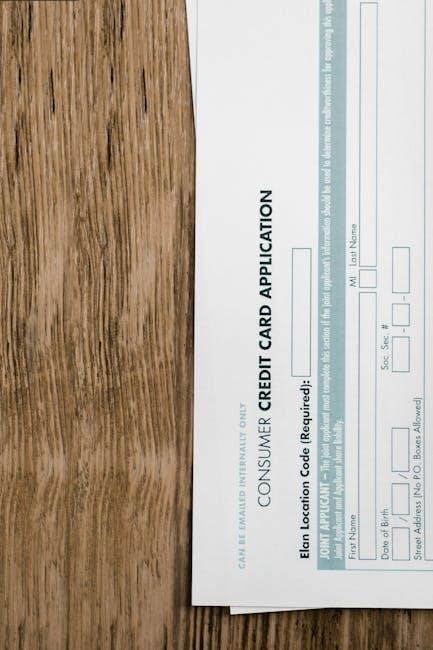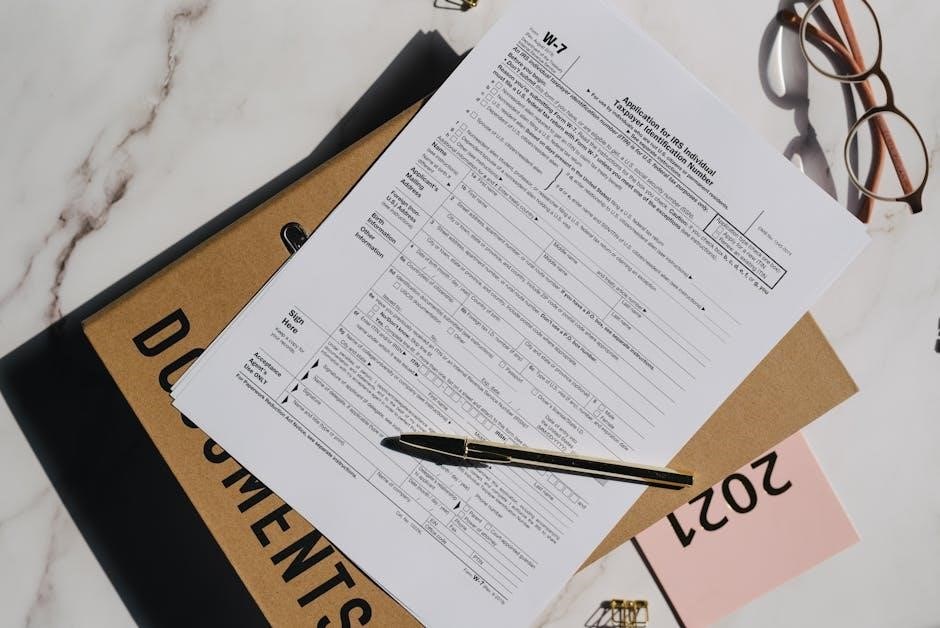The introduction to free tenant application form BC provides guidance on residential tenancy act and agreement, with forms available on the Province of BC website for tenants and landlords to use easily online
Overview of the Tenancy Application Process
The tenancy application process involves several steps, including completing a tenancy application form, providing required information, and undergoing a screening process by the landlord.
The application form typically includes personal and financial information, such as employment history and credit references.
Applicants must provide full legal names and other relevant details to facilitate the screening process.
Landlords use this information to assess the applicant’s suitability as a tenant and make an informed decision.
The process is designed to ensure that both parties are aware of their rights and responsibilities under the Residential Tenancy Act.
By following the established procedures, landlords and tenants can navigate the application process efficiently and effectively, setting the stage for a successful tenancy.
The overview of the tenancy application process is essential for understanding the requirements and expectations of both landlords and tenants in British Columbia.

Understanding the Residential Tenancy Act
Residential Tenancy Act governs landlord and tenant relationships in British Columbia with specific rules and regulations to follow for a harmonious tenancy experience always online easily
Key Components of the Tenancy Agreement
The key components of the tenancy agreement include the names of the landlord and tenant, rental amount, and payment terms. The agreement should also outline the responsibilities of both parties, such as maintenance and repairs.
The tenancy agreement is a contract between the landlord and tenant, and it is governed by the Residential Tenancy Act. It is essential to include all the necessary details in the agreement to avoid disputes and ensure a smooth tenancy experience.
The agreement should be in writing and signed by both parties, and it should include a detailed description of the rental property, including the address, and the duration of the tenancy.
The key components of the tenancy agreement are crucial in establishing a clear understanding between the landlord and tenant, and they play a significant role in resolving disputes and issues that may arise during the tenancy.
Overall, a well-drafted tenancy agreement is essential for a successful and harmonious landlord-tenant relationship.

Landlord and Tenant Responsibilities
Landlords and tenants have specific responsibilities outlined in the Residential Tenancy Act and agreement forms available online for easy reference and use in British Columbia province
Screening and Selecting Tenants
Landlords use the free tenant application form BC to screen and select tenants, evaluating factors such as income, employment history, and credit score to determine eligibility for rental properties. The form provides a standardized template for collecting relevant information, enabling landlords to make informed decisions. By using this form, landlords can ensure a thorough and fair evaluation process, reducing the risk of disputes and potential issues. The screening process typically involves reviewing the applicant’s financial information, rental history, and personal references. Landlords may also conduct interviews or use external screening services to verify the applicant’s credentials. The goal of the screening process is to identify reliable and responsible tenants who will fulfill their obligations under the tenancy agreement, making it essential for landlords to use a comprehensive and reliable application form like the free tenant application form BC.
Completing the Tenancy Application Form
Applicants must provide full legal name, birth date, and contact information to complete the form accurately online
Required Information for the Application
To complete the application, applicants must provide required information, including their full legal name, birth date, primary contact number, and email address, as well as their current residence address, city, and the start and end dates of their present tenancy.
The application form will also require information about the type of rental accommodation being applied for, which can be entered by describing the property;
This information is necessary to process the application and to create a tenancy agreement.
The Province of BC website provides a free tenant application form that can be used to gather this information;
Applicants can access the form online and fill it out accurately to ensure a smooth application process.
The form is designed to be easy to use and understand, and it includes all the necessary fields to provide the required information.
By providing the required information, applicants can help to ensure that their application is processed quickly and efficiently.

Accessing Free Tenant Application Forms
Free tenant application forms are available on the Province of BC website for easy online access and download now always
Province of BC Website Resources
The Province of BC website offers a range of resources for tenants and landlords, including free tenant application forms, tenancy agreement templates, and guides to the Residential Tenancy Act. The website provides information on tenant and landlord rights and responsibilities, as well as resources for resolving disputes and addressing common issues that may arise during a tenancy. Tenants and landlords can access these resources online, making it easier to navigate the rental process and ensure compliance with relevant laws and regulations. The website also includes links to other relevant resources, such as the Residential Tenancy Branch, which provides additional guidance and support for tenants and landlords. By utilizing these resources, tenants and landlords can better understand their obligations and responsibilities, helping to create a more positive and successful rental experience. Overall, the Province of BC website is a valuable resource for anyone involved in the rental process.

Additional Resources and Guidelines
Online resources and guidelines help tenants and landlords understand their rights and responsibilities in British Columbia housing market easily and quickly every day online always available
Resolving Tenancy Disputes and Issues
Resolving tenancy disputes and issues can be a challenging process for both tenants and landlords in British Columbia. The Residential Tenancy Act provides a framework for resolving disputes, including mediation and arbitration. Online resources, such as the Province of BC website, offer guidance on resolving disputes and issues that may arise during a tenancy. Tenants and landlords can access information on their rights and responsibilities, as well as procedures for resolving disputes. The website also provides access to forms and templates that can be used to resolve disputes, such as a notice of dispute resolution. Additionally, the website offers information on the role of the Residential Tenancy Branch in resolving disputes and issues. By understanding the process for resolving disputes and issues, tenants and landlords can work together to find a resolution that works for both parties. This can help to prevent further disputes and ensure a smooth tenancy.
